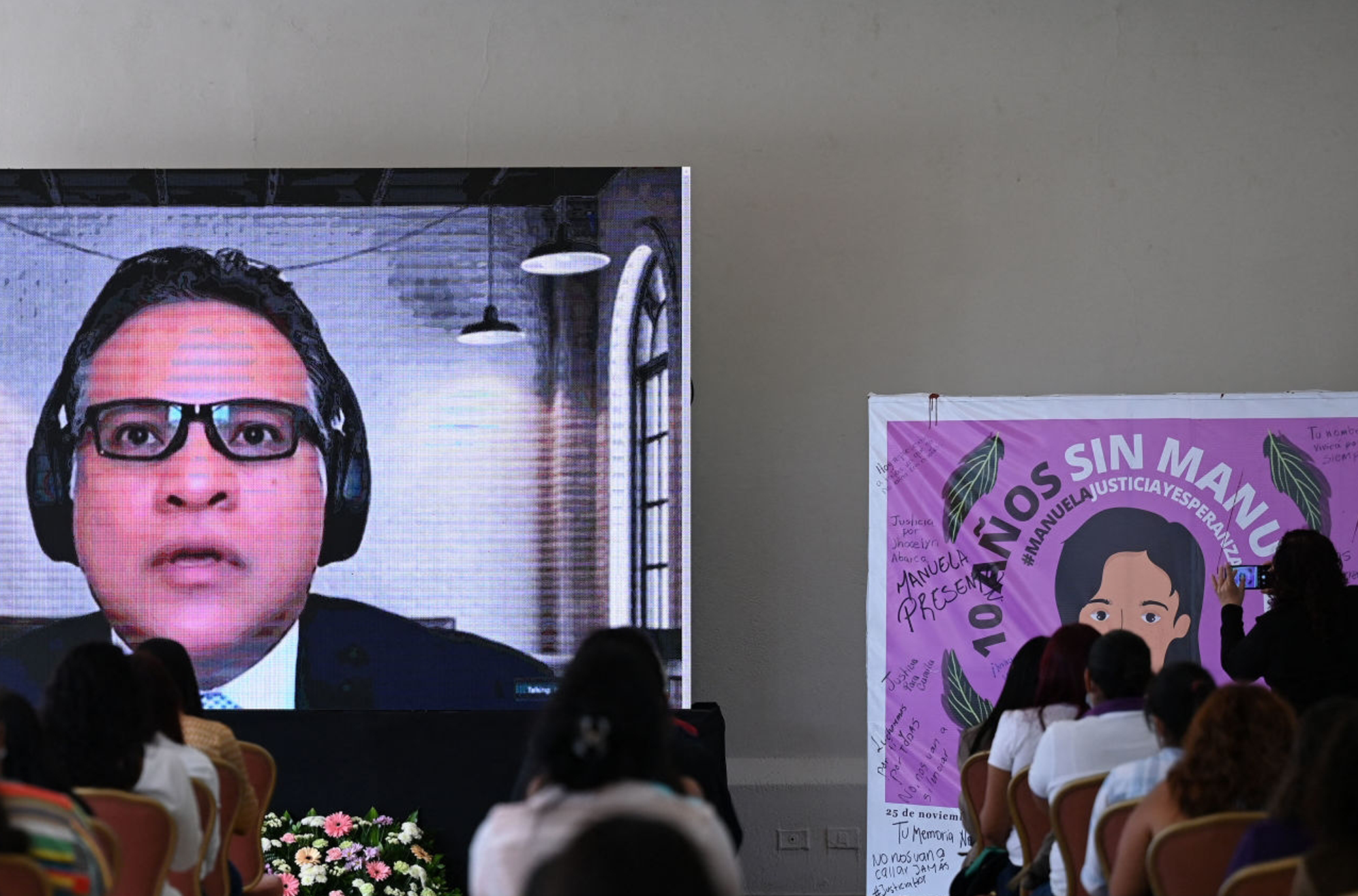
On 10-11 March 2021, the Inter-American Court of Human Rights – the regional tribunal of the Organization of American States created to adjudicate alleged human rights violations in member countries – heard arguments in Manuela and Family v. El Salvador, regarding a 33-year-old mother of two who suffered a stillbirth following a fall at her home in rural El Salvador in 2008, and was rushed to the hospital after losing consciousness and haemorrhaging. Though she said she was unaware of her pregnancy, hospital personnel accused Manuela (not her real name) of intentionally inducing an abortion and called the police. She was handcuffed to her hospital bed, interrogated by both physicians and police, and charged with aggravated homicide. In 2008, Manuela was convicted and sentenced to 30 years in prison.
Later that year, lawyers for her family started the legal process that eventually ended up in the courtroom this month − 12 years later. The claim: that criminal prosecution of a stillbirth is a human rights violation. Hundreds of Salvadoran women have been charged with abortion or aggravated homicide in the past 25 years. Under the 1997 penal code, the crime of abortion carries a prison sentence of two to eight years; aggravated homicide, 30 to 50 years.
Examining similar cases from previous years, human rights violations were found, including discrimination on the basis of gender, violations of the right to health and improperly shifting the burden of proof to the defendant women, denied her the right to due process of law, the right to protection from inhumane treatment and the right to privacy. El Salvador guarantees all these rights in binding international treaties.
The case was filed as an amicus brief at the Inter-American Court of Human Rights at the request of the Center for Reproductive Rights, the Colectiva Feminista para el Desarrollo Local, and the Agrupación Ciudadana por la Despenalización del Aborto. If the Court’s seven judges rule in Manuela’s favour, they can order El Salvador to vacate her wrongful conviction and reform its penal code. The ruling is likely to take months. While the Inter-American Court has limited power to enforce its judgments, El Salvador is legally obligated to comply with its rulings and has done so in the past, including obeying orders tackling its punitive reproductive health laws.
El Salvador’s current president, Nayib Bukele, stated in a 2018 presidential debate that he is in favour of legalizing abortion when pregnancy threatens the life of the mother and said he was “completely against” criminalizing women who have miscarriages. However, he has taken no steps to change the law or release women from prison. Vice President Felix Ulloa recently said in an interview that legislators are reviewing the total abortion ban as part of a larger effort to reform the Constitution, which currently enshrines the right to life starting at conception.
Whatever the judgment handed down in Manuela’s case, it will come too late for her: she died of cancer in prison in 2010. She was already ill with cancer when she miscarried. She was denied the right to a defence and quickly sentenced to 30 years. She was forced to sleep on her cell floor in prison and was only allowed a single visit from her family before her death. The women’s rights groups say she did not receive adequate medical care prior to her death.
The case seeks reparations for Manuela’s parents and two sons, who live in poverty in a rural area of El Salvador and have suffered emotionally because of Manuela’s imprisonment and untimely death. Her sons were seven and nine when she was convicted.
SOURCES: The Conversation, by Juliet S Sorensen, Alexandra Tarzikhan, Meredith Heim, 15 March 2021 ; Al Jazeera, by Anna-Cat Brigida, 14 March 2021 ; El País, by Debora Diniz, Giselle Carino, 12 March 2021 ; PHOTO by Marvin Recinos/AFP via Getty Images: Members of a Salvadoran feminist group watch the virtual hearing on 10 March 2021.



